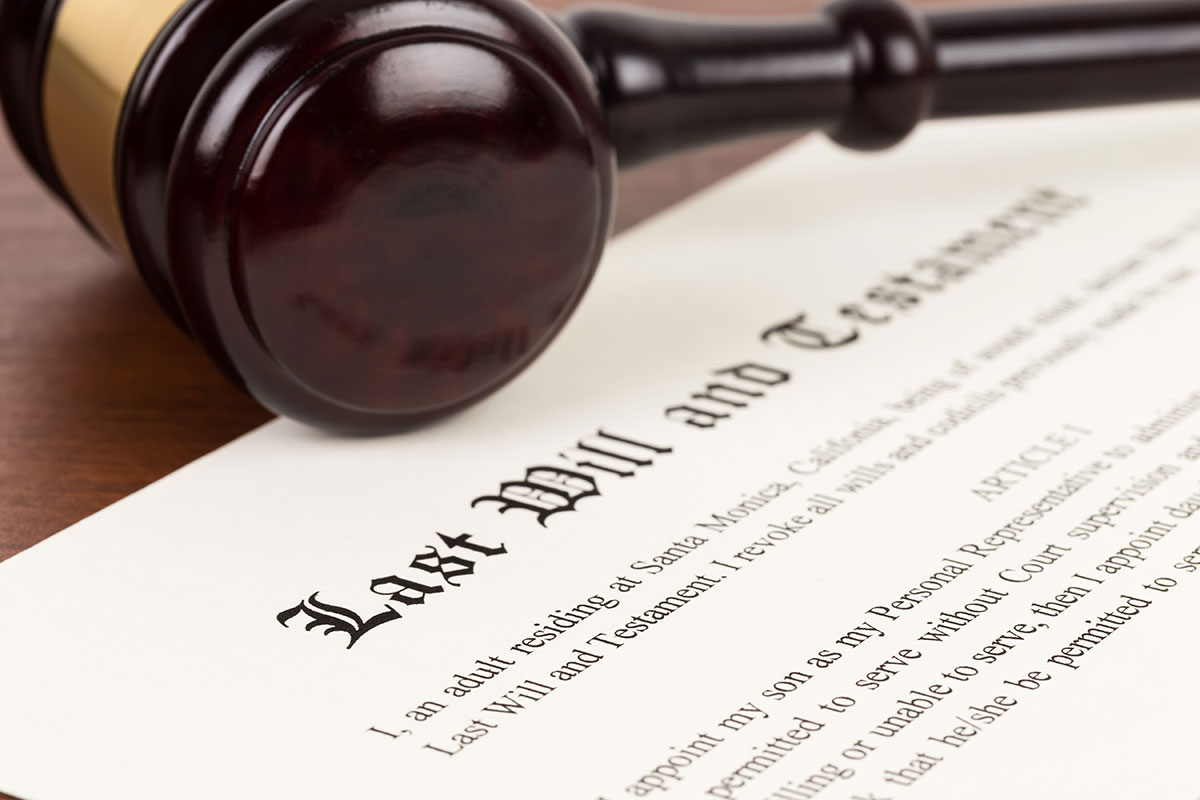The legal process that is necessary to administer the estate of a person who has passed away is called probate.
It involves proving the validity of the deceased person’s will, paying their outstanding debts and taxes, and distributing their assets to their beneficiaries. The process can be complex and time-consuming, and often requires the assistance of a qualified probate solicitor.
At Valerie Kearins Solicitors, we understand the difficulties and emotions that come with dealing with the loss of a loved one, and we’re here to help make the probate process as smooth as possible.
Our team of experienced probate solicitors can provide expert guidance and support at every step of the way, from initial advice on the administration of the estate, to assisting with the distribution of assets to beneficiaries.
We take a compassionate and understanding approach to our clients’ needs, and we work hard to ensure that the process is as stress-free as possible.

What is probate
Legally, when someone passes away and leaves assets behind – such as property, money, or personal belongings – the total sum of these assets (minus any liabilities) is referred to as their “estate”. Probate is the process of applying for the right to administer the deceased person’s estate. It involves making sure their will is proven to be valid, their debts are paid, and their assets are distributed to their intended beneficiaries.
If a person dies leaving a will behind, the named executor or executors in the document will be tasked with handling their affairs, which will require them to initiate probate. This involves them applying for a ‘Grant of Probate’ of the will from the Probate Office or the District Probate Registry.
If there is no will, a close relative of the deceased person can apply to the Probate Office or a District Probate Registry (for applications outside Dublin) to handle their estate. The grant in this case is called a ‘Grant of Letters of Administration Intestate’, and gives authority to the applicant as an ‘Administrator’ of the deceased’s estate.
Probate Services
Whenever a relative or loved one passes away there is a lot of heightened emotion and instability. It can be difficult to deal with practical matters during this time, which is why it’s crucial to have the help of expert professionals who can attend to the affairs and wishes of the deceased person in an efficient and sensitive manner.
At Valerie Kearins Solicitors we can help and advise on any of the duties of probate, delivering a personal service carried out by specialist solicitors which is designed to eliminate confusion and provide you with the utmost support and care.
The following are some of the probate services we offer:

Applying for a Grant of Probate
Valerie Kearins Solicitors has extensive experience in applying for a Grant of Probate, which is a legal document that confirms the executor’s authority to administer the estate.
Helping to deal with funeral arrangements and payments.
Our probate solicitors can help clients with all the details involved in organising the funeral, ensuring that the process is carried out smoothly and efficiently.
Valuing the estate and dealing with outstanding bills
We can assist with investigating the components of the deceased person’s estate, arriving at a valuation, and ensuring that all creditors are paid appropriately for any outstanding debts.
Contacting and dealing with insurance companies and banks
Any policies or accounts with insurance companies and banks can be managed effectively by our probate solicitors, ensuring that appropriate action is taken for the future.
Distributing funds and assets according to the will
Valerie Kearins Solicitors can assist with the distribution of funds and assets according to the will, making sure that the wishes of the deceased are carried out fairly and lawfully.
Selling or transferring ownership of property
If there is any property belonging to the deceased person’s estate, we can help with the legal requirements involved in selling or transferring ownership according to the outline of the will or at the instruction of the administrator.
Dealing with all outstanding tax matters.
Our experienced probate law team can deal with all outstanding tax matters, including filing tax returns and paying any necessary taxes on behalf of the deceased’s estate.
For more information on the probate services that we provide, or to get a head start on the process with our expert assistance, get in touch with Valerie Kearins Solicitors today for a consultation.
When should you deal with a probate law solicitor
Probate, meaning the legal process of administering a deceased person’s estate, is not always required. The valuation of the estate that has been left behind, and the way in which the deceased person held their assets, will determine if probate needs to be initiated.
In Ireland, probate is generally required when:
- The deceased person owned assets in their sole name, such as property, investments, or bank accounts, with a value above a certain threshold (usually €25,000).
- The deceased person owned property jointly with another person as tenants in common, which means that their share of the property passes to their estate upon their death.
- The deceased person had a life insurance policy or pension plan that paid out to their estate upon their death.
- The deceased person left a will, which needs to be proved in court to confirm its validity and appoint an executor to administer the estate.
- The deceased person’s estate is bankrupt, and requires handling of debts or other arrears.
- The deceased person’s estate includes foreign property or assets held abroad.
The key thing to note is that probate is not required for small estates, where the assets can be distributed among the beneficiaries without court approval. However, the exact threshold for a small estate may vary depending on the specific circumstances, and a solicitor’s job is to determine whether probate is required by dealing directly with the appropriate banks and financial institutions.

What happens to my loved ones belongings if they did not have a will
Intestacy refers to a situation where a person dies without having made a valid will. In the absence of a will, Irish law determines the distribution of the deceased person’s assets among their heirs, typically prioritizing their closest relatives such as a spouse, children, and parents.
The distribution of assets in this case will be according to the rules of intestacy as set out in the Succession Act of 1965, and depend on the family situation of the deceased at the time of their death. With no executors available due to the lack of a will, ‘administrators’ are appointed according to prescribed rules.
Here’s a general overview of how the distribution of assets works according to the rules of intestacy:
- Surviving spouse/civil partner: If the deceased had a surviving spouse or civil partner, they are entitled to the entire estate as long as there are no children or other living descendants.
- Surviving spouse/civil partner and children: If the deceased had a surviving spouse or civil partner and children, the spouse or civil partner is entitled to two-thirds of the estate, and the remaining one-third is divided equally among the children.
- Surviving children: If the deceased had no surviving spouse or civil partner but had children or other living descendants, the estate is divided equally among them.
- No surviving spouse/civil partner or children: If the deceased had no surviving spouse or civil partner, children, or other living descendants, the estate is distributed among their surviving parents or siblings.
- No surviving family members: If there are no surviving family members, the estate may escheat to the State.
Taking all of this into account, there are obvious benefits to making a will or planning your estate, as the distribution of assets can end up being contrary to the actual wishes of the deceased. For expert advice on probate, wills and estate planning services, please get in touch with us today.
Get in touch with a probate solicitor today
To find out more about probate in Ireland, please contact us at Valerie Kearins Solicitors. Our specialist knowledge will be an essential aid to you in clarifying whether or not probate is needed following the death of your loved one. We can assure you that an experienced probate solicitor will be at your side every step of the way if it is.
Based in Sligo, Valerie Kearins Solicitors is one of the leading solicitors’ firms in the country. We offer a comprehensive probate service that is unparalleled in Sligo, and also have an extensive private client practice all over Ireland.
Contact us today for an initial consultation and assessment of your particular needs.
